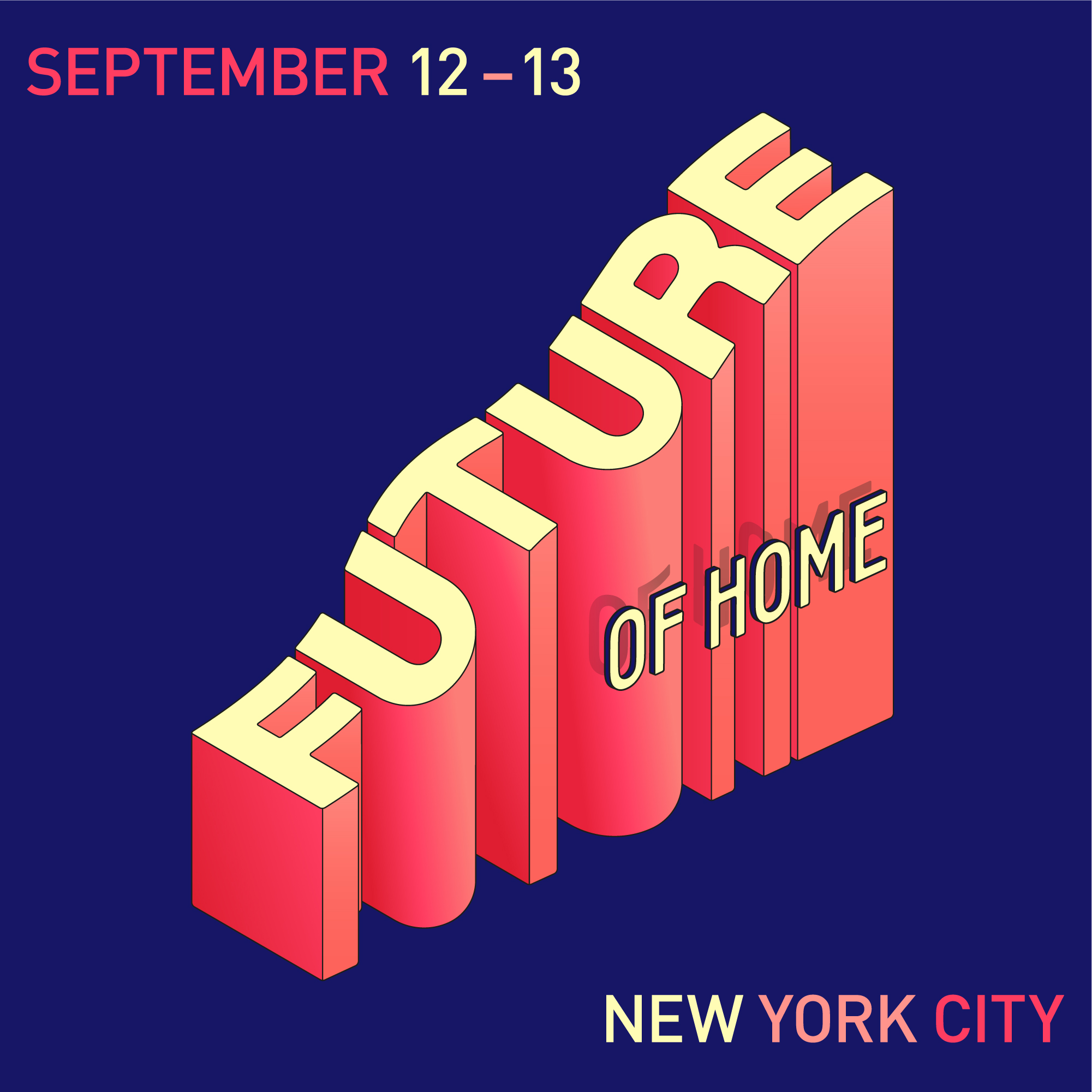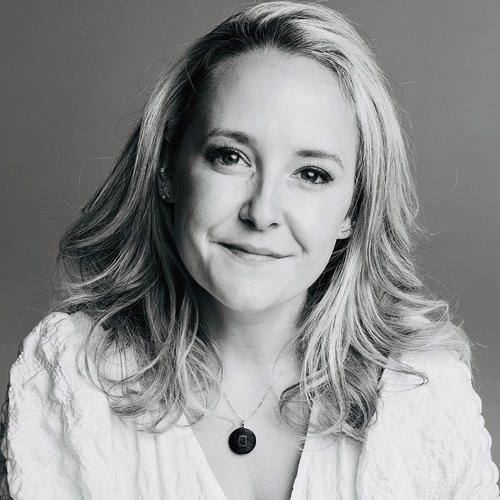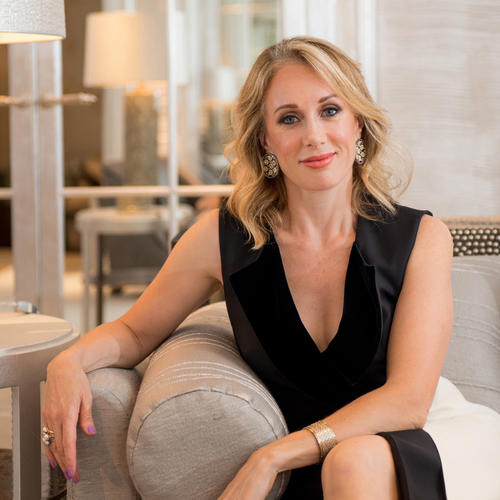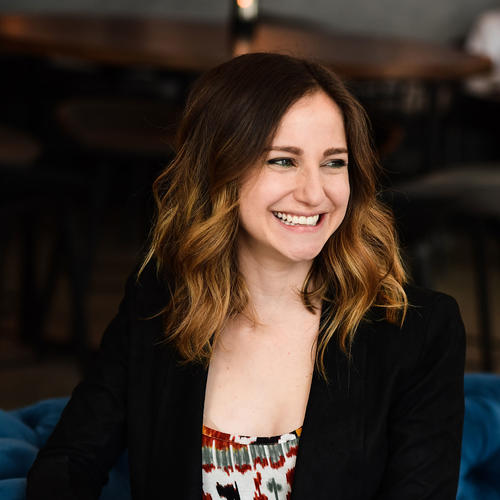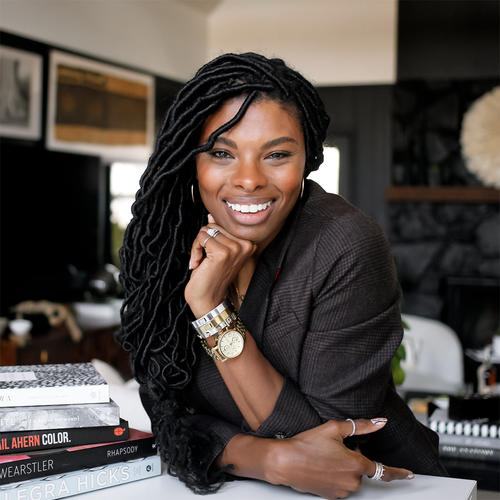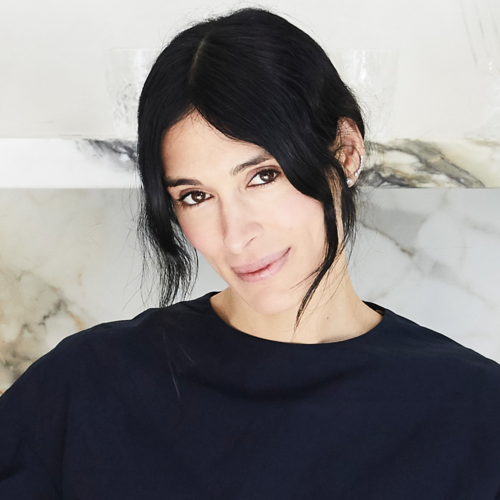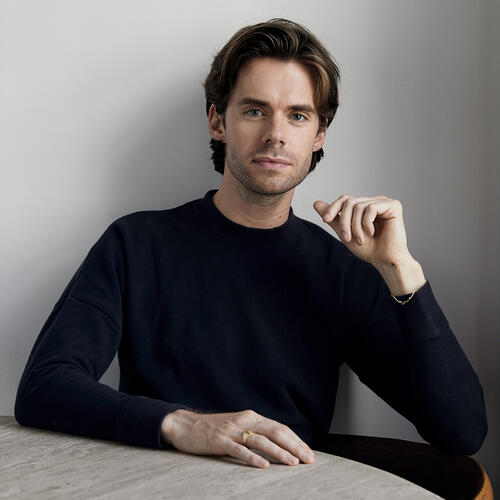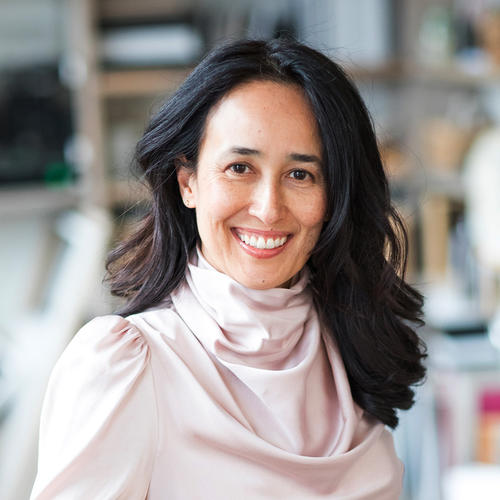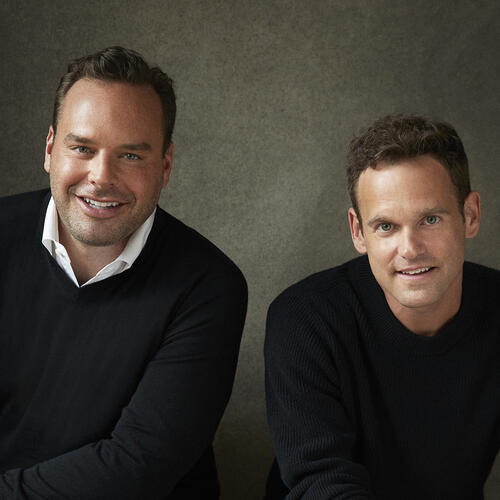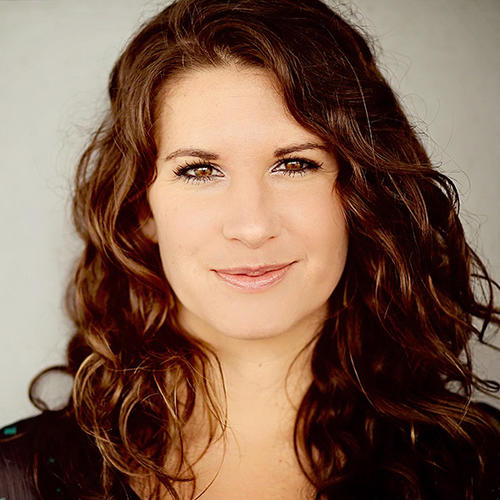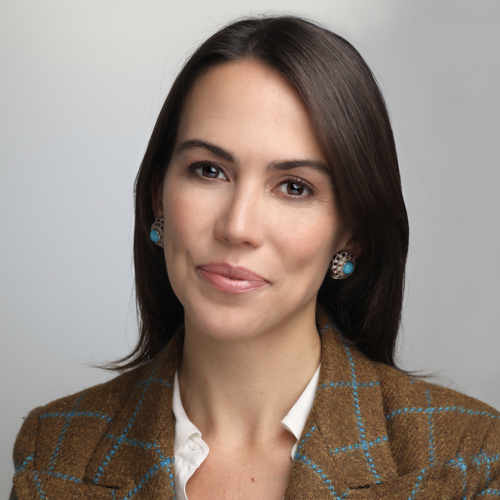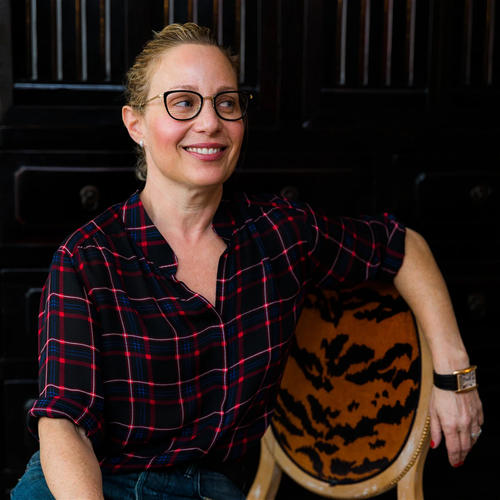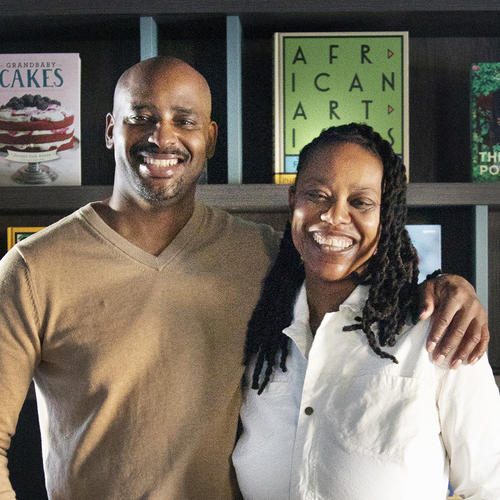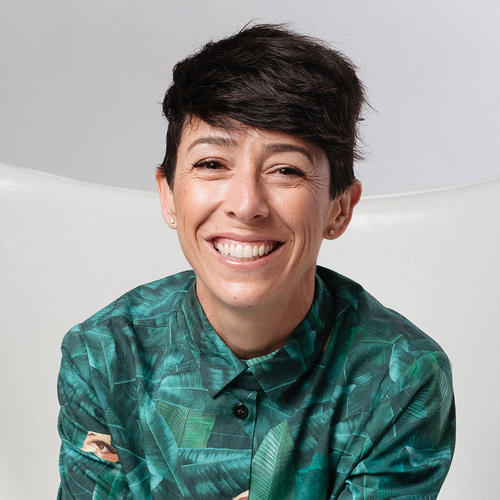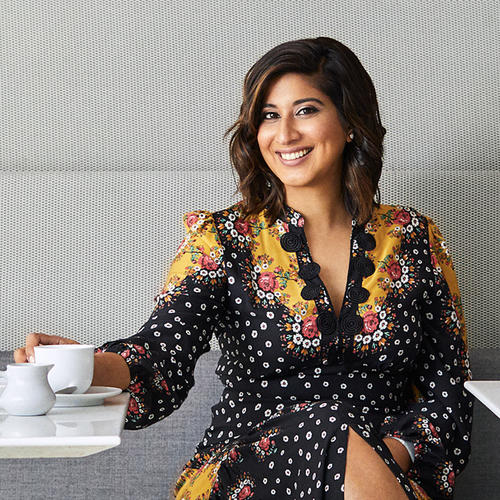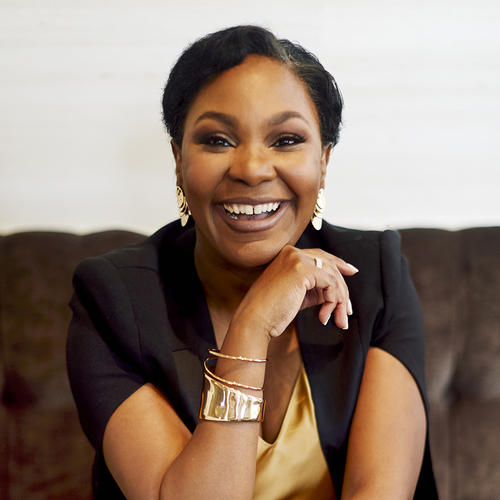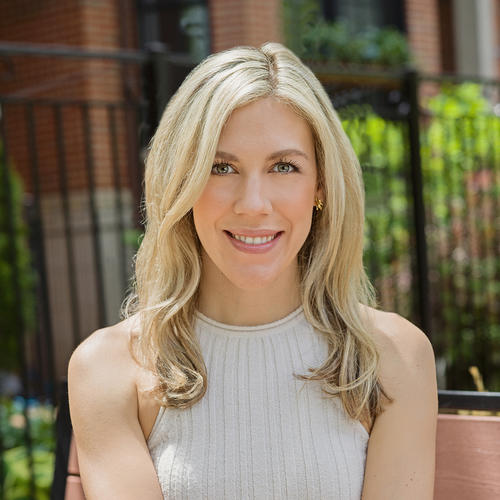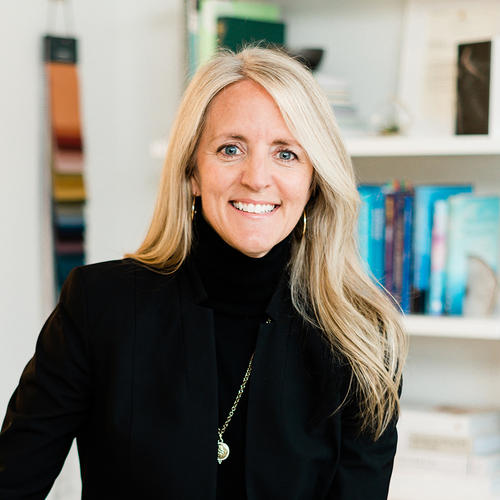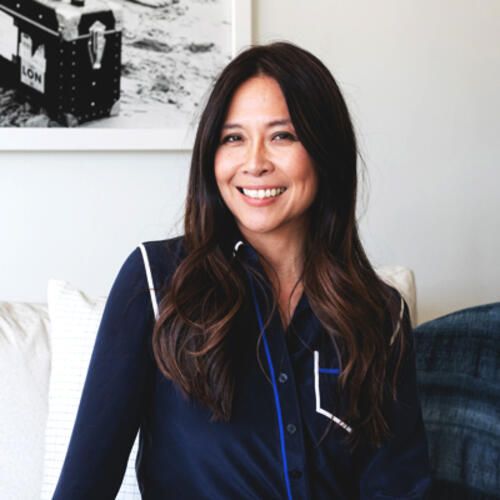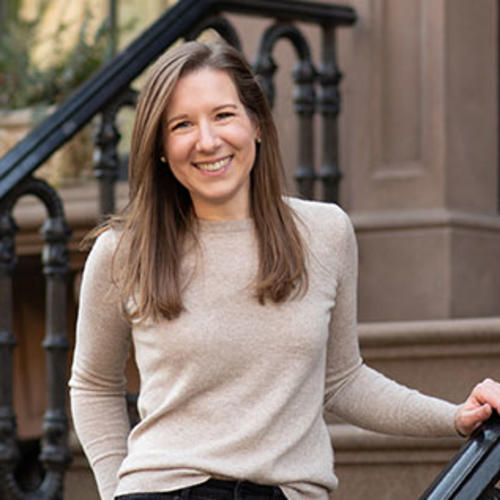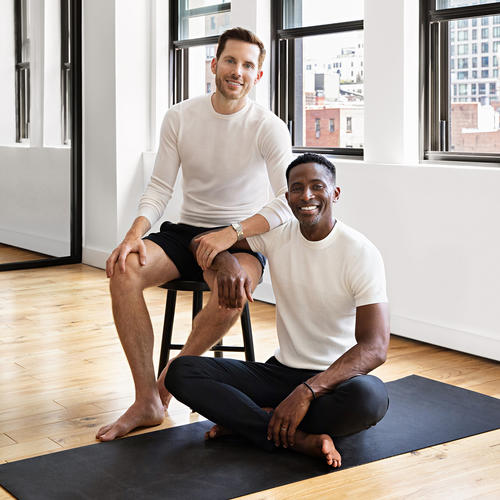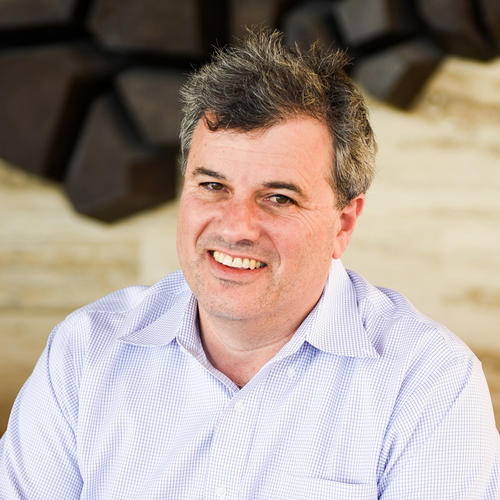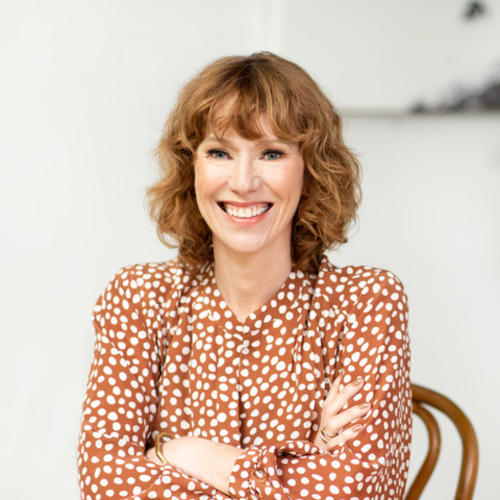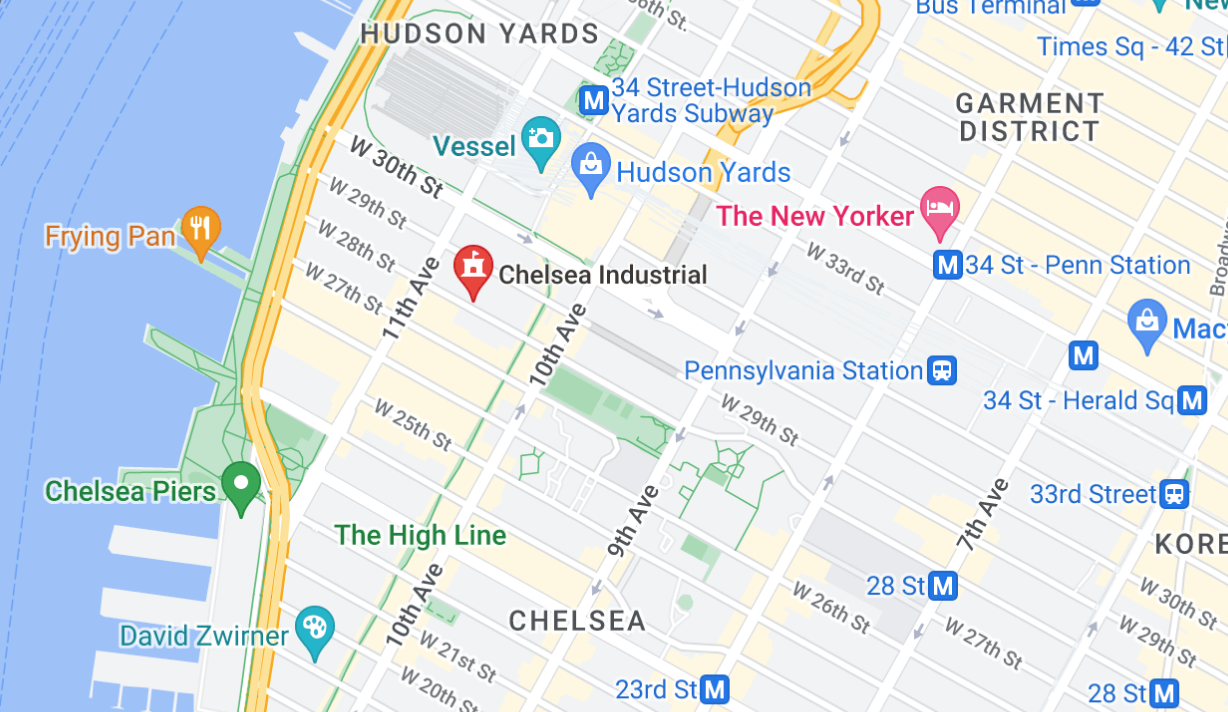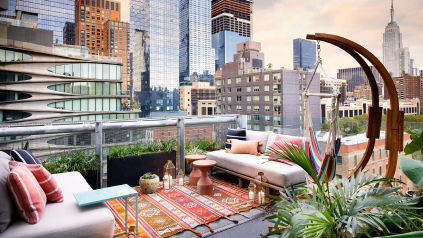Alexa von Tobel
author and founder
Financially Fearless, Inspired Capital
Tom Goodwin
Author and futurist
Digital Darwinism: Survival of the Fittest in the Age of Business Disruption
Pauline Brown
author and founder
Aesthetic Intelligence, Aesthetic Intelligence Labs
Dr. Emily Anhalt
Psychologist and Founder
Coa
Carmeon Hamilton
founder
Nubi Interiors
India Mahdavi
Architect and designer
Athena Calderone
interior designer, author, entertaining expert
Caleb Anderson
partner and co-founder
Drake/Anderson and Well-Designed
DeAndre DeVane
co-founder
Well-Designed
Mariam Naficy
Founder and managing partner
Heretic Ventures
Raad Mobrem
Co-founder and CEO
Intro
Lee Mayer
Co-founder and CEO
Havenly
Erik Curtis
Designer, sculptor and co-star
Adair Curtis
Co-Founder
JSN Studio
Billy Clark and Clayton Apgar
Founder, partner
Billy Clark Creative Management
Danielle Trofe
founder
Danielle Trofe Design
Tessa Callaghan
co-founder and CEO
AlgiKnit
Phillip Raub
CEO
Model No.
Whitney Frances Falk
Founder and CEO
ZZ Driggs
Katie Rosenfeld
Founder
Katie Rosenfeld & Co.
Elizabeth Bennett and Mallory Robins
co-founders and principals
Kobel + Co.
Jeanine Hays and Bryan Mason
co-founders
AphroChic
Gala Magriñá
principal
Gala Magriñá Design
David Truog
vice president and principal analyst
Forrester Research
Tina Ramchandani
founder
Tina Ramchandani Creative
Clark Boyd
digital strategy consultant, professor and author
Arianne Bellizaire
founder
Arianne Bellizaire Interiors
Amanda Hilton
wellness consultant and founder
The Simply Well
✕
Alexa von Tobel
author and founder
Financially Fearless, Inspired Capital
Entrepreneurial Mindset
One of the most acclaimed entrepreneurs of the last decade, Alexa von Tobel is a “startup whisperer” who incorporates elements of design into all facets of her work. In New York, her Inspired HQ provides a collaborative space that combines design expertise, operational support and access to the capital required to turn bold ideas into category-defining companies. In this discussion, she’ll share her most important rules for entrepreneurial success, including how to raise capital, know your customer, inspire teams and organizations and identify your success metrics. She’ll also analyze the current economic climate and address what business leaders can do to plan ahead in a downturn.
Alexa von Tobel is the managing partner of Inspired Capital, a $500 million venture capital firm that specializes in early-stage tech founders and startups such as executive women’s network Chief. Previously, she founded and served as the CEO of LearnVest (acquired by Northwestern Mutual in 2015), which redefined the American approach to personal finance. A graduate of Harvard College and Harvard Business School, she has appeared on the cover of Forbes magazine and been featured in such prominent publications as Fortune, Inc., Marie Claire and Elle. In addition to her role as a columnist for Money and Cosmopolitan magazines, she is the New York Times bestselling author of Financially Fearless and hosts a related weekly podcast, Inc. Founders Project with Alexa von Tobel.
✕
Tom Goodwin
Author and futurist
Digital Darwinism: Survival of the Fittest in the Age of Business Disruption
Digital Transformation of Home
In an era of rapidly accelerating digital transformation, concepts such as “natural selection” and “survival of the fittest” are defining who survives and who thrives in the home industry. Bestselling author Tom Goodwin shines a light on the future by looking at lessons from the past and offers insight into how business owners can create their own digital transformation. He challenges assumptions around how to adapt, what to embrace and what to ignore—and encourages business leaders to go big or go home.
Tom Goodwin is the author of Digital Darwinism: Survival of the Fittest in the Age of Business Disruption, the host of The Edge on Euronews Next and the founder of All We Have Is Now, a business transformation consultancy. With more than 700,000 followers, Goodwin has been voted the No. 1 voice in marketing on LinkedIn four times. Business Insider named him one of 30 people to follow on Twitter, and Fast Company called him a “must-follow.” He considers it his role to understand new technology, consumer behavior and culture, then create solutions that take advantage of these opportunities. An industry provocateur, keynote speaker and writer on the future of business, Goodwin has been quoted in The Economist and The New York Times and featured on CNBC. His writing has appeared in publications including The Guardian, TechCrunch, Forbes, Adweek, Marketing Week, The Drum, Inc., Digiday, Quartz, and the World Economic Forum.
✕
Pauline Brown
author and founder
Aesthetic Intelligence, Aesthetic Intelligence Labs
The Aesthetic Advantage
Good taste is a critical yet undervalued contributor to business success, according to author Pauline Brown. While most designers inherently possess a high level of aesthetic intelligence (or AQ, as she calls it), most are not trained to apply it to their own brands and leverage it for long-term competitive advantage. Brown believes that being more attuned to the aesthetic preferences, sensory experiences and design aspirations of clients will not only incent them to invest more in goods and services but also elicit greater delight in the process, especially in the luxury category. In this fireside chat, Brown outlines the fundamental steps for heightening your aesthetic sensitivity, identifying and expressing your brand’s aesthetic codes and striking the right balance between commercial and creative objectives.
Pauline Brown is a leader in the luxury sector and pioneer in the business of aesthetics. Her current roles include marketing professor at Columbia Business School, board member of the Neiman Marcus Group and founder of the corporate advisory firm and e-learning platform Aesthetic Intelligence Labs, which teaches executives and entrepreneurs how to apply their innate aesthetic gifts to their competitive advantage. Brown is also the author of Aesthetic Intelligence, published by HarperCollins in 2019. Previously, she was the chairman of North America at LVMH Moët Hennessy–Louis Vuitton, managing director at The Carlyle Group, and held roles at The Estée Lauder Companies and Bain. Brown received a bachelor’s degree from Dartmouth College, an MBA from the Wharton School, and is a Henry Crown Fellow of the Aspen Institute.
✕
Dr. Emily Anhalt
Psychologist and Founder
Coa
Emotional Fitness in Leadership
The world is beginning to understand that stress, burnout, anxiety—and, let’s face it, the universal pains of adulting—can drastically affect a company’s bottom line. To be successful today, business leaders and employees need to be emotionally and physically healthy. There are plenty of apps and products that claim to help achieve this, but an effective focus on mental and emotional health must be built from the inside out. In this 30-minute interactive presentation, renowned psychologist Dr. Emily Anhalt explores the importance of supporting yourself and your team by developing emotional fitness and gives practical, concrete tips for building a true culture of wellness.
Dr. Emily Anhalt is a psychologist, emotional fitness consultant and the co-founder and chief clinical officer of Coa, the digital gym for mental health offering live, therapist-led emotional fitness classes. For the past 13 years, Anhalt has been working clinically with executives, entrepreneurs and overachievers and has conducted extensive research with prominent psychologists about how leaders can improve their emotional fitness. Anhalt has matched more than 700 people into therapy and has collaborated with some of the fastest-growing organizations in the world, including Google, TEDx, NBCUniversal, Unilever, Bloomberg and Salesforce.
✕
Carmeon Hamilton
founder
Nubi Interiors
Building Authentic Connections
For all of the hand-wringing around getting social media strategy right, designer Carmeon Hamilton has a key piece of advice: Be yourself. By staying true to her core values in all of her online interactions, Hamilton has discovered a winning approach that attracts new design clients and brand partners—one focused around authenticity, clearly communicated boundaries and honesty about her inspiration and expectations.
Carmeon Hamilton is the Memphis-based interior designer and lifestyle blogger behind the brand Nubi Interiors, winner of HGTV’s Design Star: Next Gen and star of HGTV’s Reno My Rental. Committed to authenticity in branding and elevating the everyday in her design work, she has been featured in Architectural Digest, Southern Living, Essence and Domino, among other publications. Drawing from her design education and extensive experience, she seeks to discover the beauty in all things and help others find beauty in what surrounds them.
✕
India Mahdavi
Architect and designer
NFTs and the Future of Interior Design
Distrust of NFTs and the cryptocurrency market in general is not unique to the design industry. But Mariam Naficy, founder of the online art platform Minted, wants to bridge the gap between affluent art and decor buyers and the vast, untapped landscape of NFTs and digital art. Alongside a prestigious team of design-minded co-founders, including Yves Béhar, Kate Berry, Ken Fulk, Emily Henderson, India Mahdavi, Brigette Romanek and Sarah Sherman Samuel, Naficy will announce the launch of a new platform that pairs NFT artworks with an optional physical twin and presents them in interior environments rather than gallery settings. Centered around a community of interior designers and enthusiasts, the new venture emphasizes the creative collaboration between artist and designer and is intended to expand NFTs to a broader audience than just “crypto natives.” In this discussion, Naficy, co-founder Mahdavi and others examine how NFTs and digital art will affect the future of the physical space and why designers are key to unlocking this newest of mediums for everyone by simplifying the process of owning, collecting and displaying such works.
India Mahdavi is an architect and designer. Since opening her studio in Paris in 2000, she has earned acclaim around the world for her work on large hospitality projects, luxury collaborations and her own furniture line. Often referred to as the “reigning queen of color,” Mahdavi has conceived bars, restaurants, retail concepts, clubs and hotels, from Le Cloître in Arles, France, the Hotel on Rivington in Manhattan and the Townhouse Hotel Miami Beach to the Gallery at Sketch London and Ladurée in Los Angeles and Tokyo. She approaches contemporary design in a singular, eclectic and nomadic manner, bringing a pop of orientalism to the West, and looks to her heritage to drive her work, seeking inspiration from less frequented places such as Tehran, Iran, the city of her birth. “To conceive a space, I listen to it, I analyze its constraints, its needs and its context,” she says. “This is how my studio functions; the human scale prevails.”
✕
Athena Calderone
interior designer, author, entertaining expert
Curation Commerce
With the rise of the passion economy, creators are monetizing their “eye” (or aesthetic intelligence, as Pauline Brown calls it) in profoundly personal ways that make buying online not just a commercial transaction but a true exchange. Designer-influencers Athena Calderone and Colin King are masters of this modern craft. They has become a sought-after digital curators by contextualizing the very best and most meaningful products via scenography and storytelling, infusing them with purpose that fosters a personal connection with their followers. In this eye-opening discussion, these titans in the digital space explains the power of curation in community engagement and how it can be leveraged into a multifaceted business.
Athena Calderone is an interior designer, author, culinary and visual storyteller and creative director. Layered textures and patterns, collected vintage pieces and highly contrasting elements are hallmarks of her aesthetic. Deemed “the modern girl’s Martha Stewart” by The New York Times, she regularly publishes both culinary and design content on her lifestyle media platform, EyeSwoon. She is the author of Live Beautiful (Abrams, 2020) and Cook Beautiful (Abrams, 2017), recipient of the James Beard Award for photography, and hosted More Than One Thing, a podcast for like-minded multi-hyphenate creatives.
✕
Curation Commerce
With the rise of the passion economy, creators are monetizing their “eye” (or aesthetic intelligence, as Pauline Brown calls it) in profoundly personal ways that make buying online not just a commercial transaction but a true exchange. Designer-influencers Athena Calderone and Colin King are two masters of this modern craft. Each has become a sought-after digital curator by contextualizing the very best and most meaningful products via scenography and storytelling, infusing them with purpose that fosters a personal connection with their followers. In this eye-opening discussion, the two titans in the digital space explain the power of curation in community engagement and how it can be leveraged into a multifaceted business.
Colin King is the go-to stylist for many of the world’s leading brands and publications and a regular contributor to Architectural Digest, T: The New York Times Style Magazine, Ark and Rum. He collaborates regularly with Anthropologie, Crate & Barrel, Roman and Williams Guild, West Elm and Zara Home and has his own celebrated product lines with Beni Rugs and Menu. A former dancer, King brings his understanding of the power in stillness to both his interior styling and product design.
✕
Caleb Anderson
partner and co-founder
Drake/Anderson and Well-Designed
Wellness for Designers
Sponsored by Benjamin Moore
Heavy workloads and demanding schedules are the new reality for many designers, resulting in unsustainable patterns and, in some cases, burnout, anxiety and poor mental health. After experiencing aspects of this personally, designer Caleb Anderson embarked on a multiyear journey of wellness, which led him to co-found an initiative dedicated to supporting the design community through shared wellness experiences. In this discussion, Anderson and his co-founder DeAndre DeVane, along with psychologist Amanda Hilton, explore the importance of adapting a healthier framework for work and life, offer ways to authentically connect as an industry and outline a path designers can take individually and collectively to achieve a healthier way of being—one where creativity, relationships and business flourish.
Caleb Anderson is a partner at award-winning design firm Drake/Anderson and the co-founder of Well-Designed, a new venture committed to sharing resources and tools to support a more harmonious design community through enlightening experiences. With his dedication to creating and fostering more opportunities for authentic connection among his peers, Anderson is using his design talent to heighten awareness within the community around healthy materials, sustainability and social consciousness.
✕
DeAndre DeVane
co-founder
Well-Designed
Wellness for Designers
Sponsored by Benjamin Moore
Heavy workloads and demanding schedules are the new reality for many designers, resulting in unsustainable patterns and, in some cases, burnout, anxiety and poor mental health. After experiencing aspects of this personally, designer Caleb Anderson embarked on a multiyear journey of wellness, which led him to co-found an initiative dedicated to supporting the design community through shared wellness experiences. In this discussion, Anderson and his co-founder DeAndre DeVane, along with psychologist Amanda Hilton, explore the importance of adapting a healthier framework for work and life, offer ways to authentically connect as an industry and outline a path designers can take individually and collectively to achieve a healthier way of being—one where creativity, relationships and business flourish.
DeAndre DeVane is a wellness enthusiast, development coach and co-founder of Well-Designed. After several career transitions, from the Air Force to a corporate career in the financial services industry, DeVane decided to pair his desire to share personal wellness experiences with his passion for being of service to others. As a student of holistic healing, he recognizes the need for and receptivity to wellness in the design community.
✕
Mariam Naficy
Founder and managing partner
Heretic Ventures
NFTs and the Future of Interior Design
Distrust of NFTs and the cryptocurrency market in general is not unique to the design industry. But Mariam Naficy, founder of the online art platform Minted, wants to bridge the gap between affluent art and decor buyers and the vast, untapped landscape of NFTs and digital art. Alongside a prestigious team of design-minded co-founders, including Yves Béhar, Kate Berry, Ken Fulk, Emily Henderson, India Mahdavi, Brigette Romanek and Sarah Sherman Samuel, Naficy will announce the launch of a new platform that pairs NFT artworks with an optional physical twin and presents them in interior environments rather than gallery settings. Centered around a community of interior designers and enthusiasts, the new venture emphasizes the creative collaboration between artist and designer and is intended to expand NFTs to a broader audience than just “crypto natives.” In this discussion, Naficy, co-founder India Mahdavi and others examine how NFTs and digital art will affect the future of the physical space and why designers are key to unlocking this newest of mediums for everyone by simplifying the process of owning, collecting and displaying such works.
Mariam Naficy is the founder and managing partner of Heretic Ventures and founder and chairperson of Minted. With more than two decades of consumer internet experience, she’s known for seeing around corners and anticipating the advent of e-commerce. In 1998, Naficy launched Eve, the world’s first cosmetics e-commerce site, selling it successfully two years later, then led product management at Movielink, an early downloadable movie service. Quick to recognize the potential of online communities, she founded one of the most successful e-commerce companies in the world, Minted, which generates several hundred million dollars in sales each year and has pioneered decentralized decision-making through crowd voting, the funding of a designer “middle class” and the promotion of creative output through artist collaboration. Naficy sits on the board of directors of Minted, Every Mother Counts, Medium and Victoria’s Secret. She is a trustee of Williams College and a member of the advisory council of Stanford’s Graduate School of Business.
✕
Raad Mobrem
Co-founder and CEO
Intro
Design Services at Scale
Entrepreneurs and investors haven’t given up on the idea that design services should be more accessible. While business models in this category are constantly shifting—and despite the failure of at least four major players in the e-design space—both newcomers and those still standing continue to find innovative ways to evolve their companies in response to the growing consumer demand for online design. Consider: After nearly a decade of exclusively digital offerings, Havenly rolled out in-person design services earlier this year, while venture-backed startup Intro is shaking up the consultation model by connecting consumers with designers in 15-minute increments. How are these companies finding success while scaling services, and what can designers learn from them? In this discussion, Lee Mayer and Raad Mobrem analyze what consumers are connecting with and why, what’s unique about selling design online and how to digitally communicate the value of design.
Raad Mobrem is the co-founder and CEO of Intro, connecting top experts for personalized advice over video call. Previously, Mobrem built an operating system for small businesses that was acquired by Intuit and transformed into the next generation of QuickBooks Online. He has won numerous awards and honors, including being named to Inc. magazine’s 30 Under 30 list in 2014. He resides in Los Angeles, where Intro is headquartered.
✕
Lee Mayer
Co-founder and CEO
Havenly
Design Services at Scale
Entrepreneurs and investors haven’t given up on the idea that design services should be more accessible. While business models in this category are constantly shifting—and despite the failure of at least four major players in the e-design space—both newcomers and those still standing continue to find innovative ways to evolve their companies in response to the growing consumer demand for online design. Consider: After nearly a decade of exclusively digital offerings, Havenly rolled out in-person design services earlier this year, while venture-backed startup Intro is shaking up the consultation model by connecting consumers with designers in 15-minute increments. How are these companies finding success while scaling services, and what can designers learn from them? In this discussion, Lee Mayer and Raad Mobrem analyze what consumers are connecting with and why, what’s unique about selling design online and how to digitally communicate the value of design.
Lee Mayer is the co-founder and chief executive officer of Havenly, the largest online interior design service. The company has raised more than $57 million and completed hundreds of thousands of personalized designs for its clients. In 2021, Havenly announced a multiyear partnership with Reese Witherspoon’s eponymous book club, acquired direct-to-consumer fast-furniture brand The Inside and expanded nationwide with in-home design services. Lee holds a bachelor’s degree from Columbia University and an MBA from Harvard Business School. Prior to founding Havenly, she worked in corporate finance at Bankrate and Bain & Co.
✕
Erik Curtis
Designer, sculptor and co-star
Designing for TV
On the new Netflix series Instant Dream Home, a high-energy team of design pros complete dramatic 12-hour transformations for unsuspecting families. Dubbed “part home renovation show, part heist movie,” each episode details the ups and downs of a project as it unfolds over one long day of painstaking plans and big risks. But how did they really make it happen? In a behind-the-scenes look at what it takes to push a project across the finish line, interior designer Adair Curtis and carpenter Erik Curtis (no relation) share how they utilized innovative built elements to meet looming deadlines—and how those same strategies and solutions can be applied to today’s challenging design/build environment.
Erik Curtis is an American designer, sculptor and television personality. A master woodworker, he studied at the Center for Furniture Craftsmanship in Rockport, Maine, and has worked alongside such world-renowned craftspeople as Rob Hare, Yuri Kobayashi, Peter Korn and David Upfill-Brown. By combining the sculptural with the functional, he creates beautiful objects that not only elevate his clients’ spaces but offer them the luxury of interacting on a daily basis with a work of art. Curtis also stars as the team’s carpenter on Netflix’s Instant Dream Home.
✕
Adair Curtis
Co-Founder
JSN Studio
Designing for TV
On the new Netflix series Instant Dream Home, a high-energy team of design pros complete dramatic 12-hour transformations for unsuspecting families. Dubbed “part home renovation show, part heist movie,” each episode details the ups and downs of a project as it unfolds over one long day of painstaking plans and big risks. But how did they really make it happen? In a behind-the-scenes look at what it takes to push a project across the finish line, interior designer Adair Curtis and carpenter Erik Curtis (no relation) share how they utilized innovative built elements to meet looming deadlines—and how those same strategies and solutions can be applied to today’s challenging design/build environment.
Adair Curtis is the co-founder and managing partner of JSN Studio, a multidisciplinary design and styling firm based in Los Angeles. A celebrity interior designer with a business management and communications background, he is widely regarded for his clean aesthetic and elegant approach to style and living. Curtis is a 1stDibs 50 Honoree and stars in the new Netflix series Instant Dream Home.
✕
Billy Clark and Clayton Apgar
Founder, partner
Billy Clark Creative Management
Working in the New World
What does work look like in the 21st century, and how long will “The Great Resignation” be a pain point for employers? Career experts Billy Clark and Clayton Apgar posit that, while work has undoubtedly evolved, it still retains its existential importance in giving us structure, meaning and a sense of identity. What form work will take going forward, however, is the subject of much debate. Drawing from their new book, The Little Book to Land Your Dream Job, and new podcast, The Hire Life, the business partners examine the elements critical to developing a professional identity, hiring the right candidates and creating a work culture that supports your best people. They also share insights and lessons from the decades of work they’ve done with companies and individuals in the interior design and home industry. Stay for a book signing following the talk.
Billy Clark is the founder of Billy Clark Creative Management (BCCM). Prior to opening the agency, he spent 11 years building the recruiting firm Jack Kelly & Partners after starting his career in investor relations at Taylor Rafferty. A graduate of Boston College, he now divides his time between New York and Los Angeles.
Clayton Apgar is a partner at BCCM. He began his career in public relations at Enterprise Community Partners and for seven years was an actor, working on Broadway and in television and film. After leading his own interior design practice, he spent two years on the design team at Michael S Smith. He holds an MFA in acting from NYU’s Tisch School of the Arts and a bachelor’s degree in history from Princeton University. He lives with his wife and son in Southern California.
✕
Danielle Trofe
founder
Danielle Trofe Design
Growing a Better Future
Manufacturers are experimenting with every conceivable alternative material in the race toward a more sustainable future. But while many fashion brands have already adopted eco-conscious fabrics, the home industry has been slower to make that shift. At the forefront of the movement are Danielle Trofe and Tessa Callaghan. As the founders of businesses focused on plant-based materials, they exemplify how entrepreneurs are paving the way for the home sector’s material revolution. Together, they discuss the challenges of working with alternative materials, why consumer demand for them is so strong and how the design industry can get on board.
Danielle Trofe is a biodesigner, biomimicry specialist and founder of a Brooklyn-based design studio that’s been creating sustainable solutions at the intersection of science, technology and design for more than a decade. As a consultant, she advises organizations about ways to adopt nature-inspired design strategies, and she has taught courses on the subject at Pratt Institute and Parsons School of Design at The New School. Her work includes most notably the award-winning MushLume Lighting Collection, a biofabricated product line grown from mushroom mycelium. Trofe’s designs have been featured at the Design Museum in London, the Brooklyn Botanic Garden and Bryant Park, as well as many prominent hotels, restaurants and public spaces.
✕
Tessa Callaghan
co-founder and CEO
AlgiKnit
Growing a Better Future
Manufacturers are experimenting with every conceivable alternative material in the race toward a more sustainable future. But while many fashion brands have already adopted eco-conscious fabrics, the home industry has been slower to make that shift. At the forefront of the movement are Danielle Trofe and Tessa Callaghan. As the founders of businesses focused on plant-based materials, they exemplify how entrepreneurs are paving the way for the home sector’s material revolution. Together, they discuss the challenges of working with alternative materials, why consumer demand for them is so strong and how the design industry can get on board.
Tessa Callaghan is the co-founder and CEO at AlgiKnit, a biomaterials company working to provide fashion brands with kelp-based textiles. AlgiKnit’s yarn development is driven by sustainable needs, cost competitiveness and the establishment of a circular economy. With a background in design and innovation, Callaghan is leading a growing team to work across the supply chain, connecting and aligning partners, brands and manufacturers to achieve their sustainability goals and transform the textile ecosystem.
✕
Phillip Raub
CEO
Model No.
Sustainable Supply Chains
Consumption patterns have shifted, and there is increasingly an expectation among consumers for brands to be mindful of their environmental impact. But while the furniture industry is a top culprit in deforestation, which is a key contributor to climate change, few companies are offering meaningful solutions. How can furniture designers and manufacturers build a better supply chain and lessen the industry’s environmental impact? From 3D-printed food waste and localized micro-factories to alternative materials, the leaders of two sustainable-first luxury home brands discuss the ways they are doing it.
Phillip Raub is the CEO of Model No., a company that delivers luxury furnishings that are good for people and the planet. Prior to his current position, he co-founded B8ta, where he pioneered the retail-as-a-service model, growing the business to more than 30 global locations. He has also held various leadership roles at Google Nest, Nintendo and Gap Inc.
✕
Whitney Frances Falk
Founder and CEO
ZZ Driggs
Sustainable Supply Chains
Consumption patterns have shifted, and there is increasingly an expectation among consumers for brands to be mindful of their environmental impact. But while the furniture industry is a top culprit in deforestation, which is a key contributor to climate change, few companies are offering meaningful solutions. How can furniture designers and manufacturers build a better supply chain and lessen the industry’s environmental impact? From 3D-printed food waste and localized micro-factories to alternative materials, the leaders of two sustainable-first luxury home brands—Whitney Frances Falk and Phillip Raub—will discuss the ways they are doing it.
Whitney Frances Falk is the founder of ZZ Driggs, a New York–based Certified B Corporation focusing on sustainability in home furnishings. A three-time Webby Award honoree and Fast Company Innovation by Design Award winner, she has a background in experiential and interior design, including set design for mass meditation movement The Big Quiet, and a degree in art history from the University of Miami. In her previous career as a stockbroker at global investment bank Jefferies, she analyzed equities including specialty furniture retailers and manufacturers.
✕
Katie Rosenfeld
Founder
Katie Rosenfeld & Co.
The sharp pivot to working remotely at the onset of the pandemic has cemented online design as a fixture in the industry, but what form it takes is still open to interpretation. Four designers with a variety of reasons for venturing into virtual services—as well as a mix of approaches to connecting with clients digitally, from 15-minute video calls to longer-term relationships that culminate in a shopping list—shed light on what they’re doing, how they make it work, how they’ve made it lucrative and what you stand to gain (and lose) when designing online.
Katie Rosenfeld is a nationally published designer best known for her optimistic, layered, eclectic yet classic and clean style, as featured in Veranda, Country Living and The Wall Street Journal. Based in Boston, she has projects throughout the United States. While her style is rooted in tradition, Rosenfeld always infuses her designs with that one “imperfect” moment that makes a space feel just the right amount of edgy, happy and cool. Clients come to her for fresh, timeless and truly livable interiors that meet the demands of busy family life while still managing to look effortlessly chic.
✕
Elizabeth Bennett and Mallory Robins
co-founders and principals
Kobel + Co.
Making Online Design Work for You
The sharp pivot to working remotely at the onset of the pandemic has cemented online design as a fixture in the industry, but what form it takes is still open to interpretation. Four designers with a variety of reasons for venturing into virtual services—as well as a mix of approaches to connecting with clients digitally, from 15-minute video calls to longer-term relationships that culminate in a shopping list—shed light on what they’re doing, how they make it work, how they’ve made it lucrative and what you stand to gain (and lose) when designing online.
Kobel + Co. principals Mallory Robins and Elizabeth Bennett decided long ago that their studio would live and die by one simple ideology: What’s best for the design? Asking this question early and often has resulted in explosive growth for the Kansas City–based firm over the past five years. The duo’s design ethos, complementary yin-and-yang dynamic and talent for creating family-friendly spaces that don’t skimp on style have won Kobel + Co. many large-scale residential clients in Kansas City and across the country, via both traditional in-person offerings and their proprietary e-design service, Shoppable Design.
✕
Jeanine Hays and Bryan Mason
co-founders
AphroChic
Redefining Design
For too long, the Black family home has been a missing piece in the narratives of both interior design and American history. But thanks to a forthcoming book from Jeanine Hays and Bryan Mason, that’s about to change. By redefining “home” and exploring its role as a cornerstone of Black culture and life, while also documenting obstacles like gentrification and redlining that Black homeowners have faced for generations, it helps complete the picture of a long-overlooked yet vitally important part of the country’s housing market. Ahead of its November publication, Hays and Mason offer a first look at the art- and heirloom-filled pages of AphroChic: Celebrating the Legacy of the Black Family Home and share why it’s so essential to honor the journey, recognize the struggle and celebrate the joy of these spaces.
AphroChic is dedicated to exploring the intersection of modern design and global culture across diverse populations, with a focus on highlighting culture, creativity, art, fashion and food within the African diaspora. Founded by husband-and-wife team Bryan Mason and Jeanine Hays, the brand started as a blog before quickly expanding into creative fields such as interior design, product design and content creation. Through projects with HGTV, House Beautiful and their own publication, AphroChic magazine, they have been documenting the Black family home and Black contributions to design for more than a decade. Experts storytellers, the pair are also the authors of Remix: Decorating with Culture, Objects and Soul and were the producers of Sneak Peek With AphroChic, a groundbreaking house tour series created exclusively for HGTV’s Facebook Live channel. The brand has been featured in The New York Times, Architectural Digest, Elle Decor, People and New York, which celebrated AphroChic as one of the top interior design firms in the city.
✕
Gala Magriñá
principal
Gala Magriñá Design
Intro to Holistic Design
Holistic design is based on the premise that mental and physical health are enhanced by the quality of interior environments. Using that framework as the essence of her practice, Gala Magriñá explains how she works with clients to design spaces that support their minds, bodies and spirits. In addition to creating rooms that simply feel good, holistic design can also promote overall health—by eliminating poor lighting, for example, which can induce stress, and renovating to allow for more natural light, a key factor in our bodies’ regulation of immune system functioning and sleep. With a tool kit that’s as much about overarching ideas and theory as it is tactical, actionable solutions, Magriñá shares how to incorporate holistic design principles into the daily workings of a firm and promote wellness throughout the design process.
Raised in New York and Barcelona, Gala Magriñá founded her multidisciplinary firm, Gala Magriñá Design, in 2017. While her interest in interiors can be traced back to her Hawaiian-themed childhood bedroom, her career was ultimately shaped by her education as a film student at New York University and her eventual role as the founder of M Crown Productions, an award-winning production design agency that focused on events, pop-ups and exhibition and retail displays. Her interest in holistic design and mindfulness practices influenced her career shift from events and temporary spaces to interiors, and it continues to inform the mission of her business today.
✕
David Truog
vice president and principal analyst
Forrester Research
Reframing the Metaverse
Rather than dismissing the metaverse as a dystopian notion, David Truog views the digital landscape as an enhancement of the physical world—provided we make good design decisions about it. He makes the case that the metaverse is not new: Humans have been world-building for centuries, whether in a novel written 300 years ago that presents an imaginary place; designed objects and interiors that can act as an escape from external realities; or even modern-day digital experiences on your iPhone. In this presentation and conversation, Truog highlights some of the ways the metaverse offers a profoundly human experience, demonstrating how the basic concept is one designers are already using and sharing examples of how they and the brands they represent can further embrace it to enrich their craft.
David Truog researches innovation, tools and best practices at the intersection of technology and design, with an emphasis on conversational AI (voice and text virtual assistants or chatbots), the metaverse, extended reality (augmented, virtual and mixed) and other emerging advancements in the field. His passions also include filmmaking, coding and photography.
✕
Tina Ramchandani
founder
Tina Ramchandani Creative
Making Online Design Work for You
The sharp pivot to working remotely at the onset of the pandemic has cemented online design as a fixture in the industry, but what form it takes is still open to interpretation. Four designers with a variety of reasons for venturing into virtual services—as well as a mix of approaches to connecting with clients digitally, from 15-minute video calls to longer-term relationships that culminate in a shopping list—shed light on what they’re doing, how they make it work, how they’ve made it lucrative and what you stand to gain (and lose) when designing online.
Tina Ramchandani developed her design expertise at several top-tier, high-end residential and commercial interior design firms, including Vicente Wolf Associates, which led to the formation of her own company, Tina Ramchandani Creative, in 2014. Her twin passions for amazing travel experiences and gorgeous design discoveries inform her work and her spirit. When not leading a team of talented designers at TRC’s headquarters in Manhattan, she enjoys all her home city has to offer alongside her husband, Ajay, and spunky dog, Figaro.
✕
Clark Boyd
digital strategy consultant, professor and author
The Future of Product Discovery
What if you could point your phone at anything—a brand-new sofa, an antique vase, anything—and know exactly where it came from and how much it was worth? What if your clients could do the same? For most of the history of the internet, searching has been text-based: You type what you’re looking for into Google and hope for the best. Now, a wave of new technological developments is making visual search better and better—soon, what once seemed like science fiction will be part of everyday shopping. In a compelling presentation, Clark Boyd explains why we’re on the cusp of a search revolution and what it will mean for the design industry.
Clark Boyd is a digital strategy consultant, professor and author. He has held senior leadership positions at marketing agencies in London and New York, where he devised and implemented global strategies for clients including American Express, General Motors and Adidas. He works with business schools at the University of Cambridge, Imperial College London and Columbia University to structure master’s degree courses on data analytics and digital marketing. A recent appointee to the industry advisor panel for Columbia’s Media and Technology program, Boyd regularly delivers keynote speeches on data science and marketing and has been featured as a technology expert on the BBC and in the San Francisco Chronicle and Vice.
✕
Arianne Bellizaire
founder
Arianne Bellizaire Interiors
Cultivating a Growth Mindset
When you start your firm as a solo practitioner, it can be hard to get out of your own way once your business begins to grow. (After wearing all the hats from the outset, it’s easy—and understandable—to believe that no one else could pull them off even half as well as you.) But by systematically reorganizing her approach so that she could focus on the aspects of interior design she loves the most, Arianne Bellizaire cracked the code to developing talent, delegating effectively and telegraphing the value of her team to clients. In this empowering talk, she shares how she shored up her processes, then got comfortable not having her hands in every part of her business.
Arianne Bellizaire is a sought-after media personality and the CEO behind her full-service design firm, Arianne Bellizaire Interiors. Recognized as a leader for the next generation of design, her integrated technology, ROI-focused strategy and trend-forward work have graced the pages of Architectural Digest, Forbes and House Beautiful. Hospitality is embedded in the DNA of her Baton Rouge, Louisiana, firm and can be felt from the way she designs to how she partners with clients.
✕
Amanda Hilton
wellness consultant and founder
The Simply Well
Wellness for Designers
Sponsored by Benjamin Moore
Heavy workloads and demanding schedules are the new reality for many designers, resulting in unsustainable patterns and, in some cases, burnout, anxiety and poor mental health. After experiencing aspects of this personally, designer Caleb Anderson embarked on a multiyear journey of wellness, which led him to co-found an initiative dedicated to supporting the design community through shared wellness experiences. In this discussion, Anderson and his co-founder DeAndre DeVane, along with psychologist Amanda Hilton, explore the importance of adapting a healthier framework for work and life, offer ways to authentically connect as an industry and outline a path designers can take individually and collectively to achieve a healthier way of being—one where creativity, relationships and business flourish.
Amanda Hilton is a wellness consultant and founder of The Simply Well, an online education platform specializing in personal growth, community care and goal setting. She holds a master’s degree in clinical psychology from Columbia University’s Spirituality Mind Body Institute and undergraduate degrees in education and psychology from Skidmore College. Her work has included facilitating workshops on emotional resilience, designing wellness-based programming tailored to partner organizations’ specific values and audiences, and teaching family mindfulness and yoga. Passionate about using empirical science to dissect widespread wellness tropes, she considers personal and community well-being as vitally interdependent pieces of the same puzzle.

